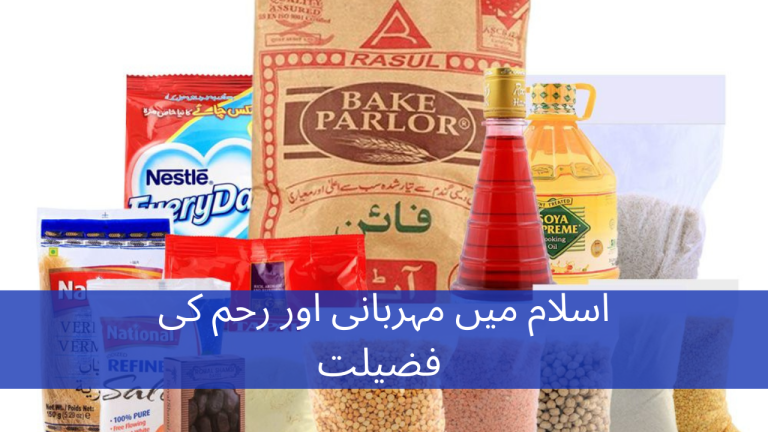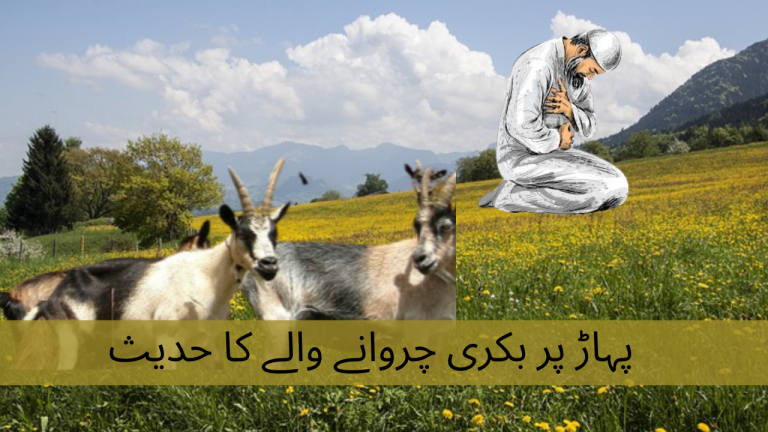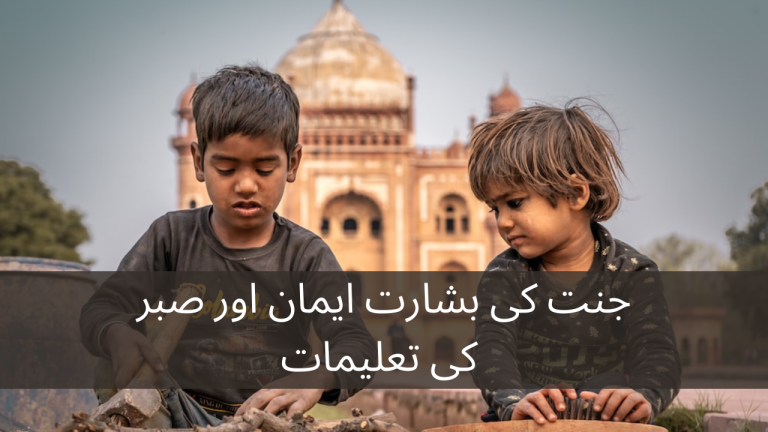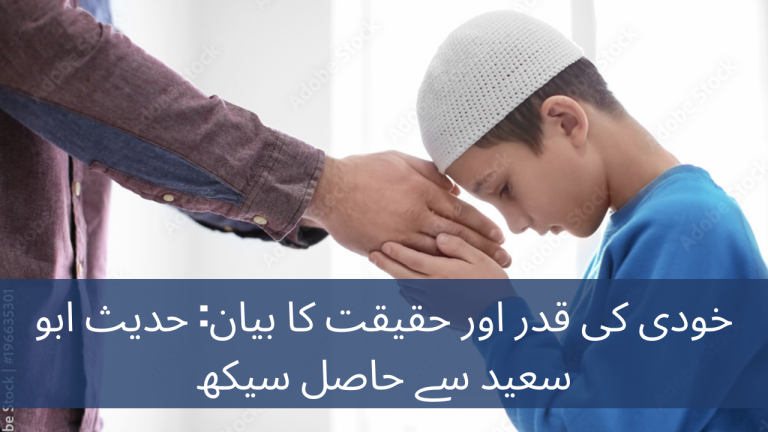Ghair pakiza Niyyatoon K Nataig K Baray May Qiyamat K Din Par Aik Hadees
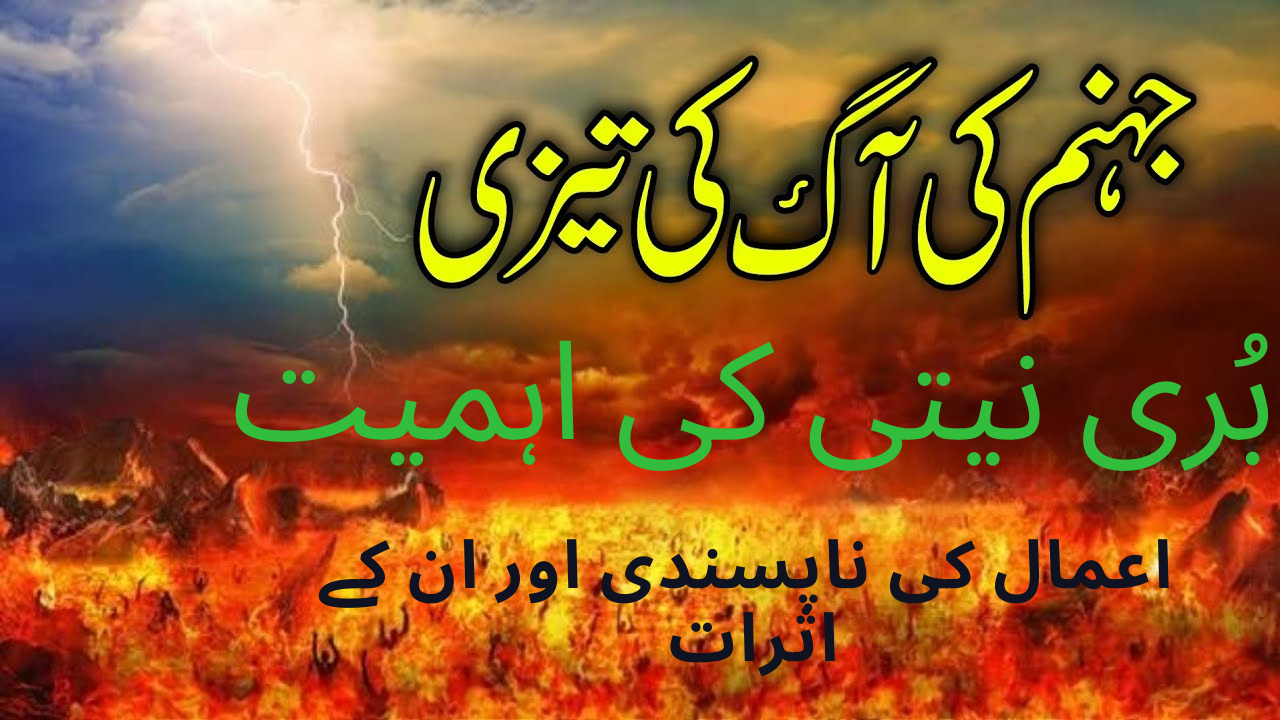
Ghair pakiza Niyyatoon K Nataig K Baray May Qiyamat K Din Par Aik Hadees
Hadees E Rasoolullah
رواه مسلم (وكذلك الترمذي والنسائي)
About This Hadees In Araibi , Urdu And English
Arabic
عَنْ أَبِي هُرَيْرَةَ رَضِيَ اللَّهُ عَنْهُ، قَالَ: سَمِعْتُ رَسُولَ اللَّهِ صَلَّى اللَّهُ عَلَيْهِ وَسَلَّمَ يَقُولُ: “إِنَّ أَوَّلَ النَّاسِ يُقْضَى يَوْمَ الْقِيَامَةِ عَلَيْهِ رَجُلٌ اسْتُشْهِدَ، فَأُتِيَ بِهِ فَعَرَّفَهُ نِعَمَهُ فَعَرَفَهَا، قَالَ: فَمَا عَمِلْتَ فِيهَا؟ قَالَ قَاتَلْتُ فِيكَ حَتَّى اسْتُشْهِدْتُ، قَالَ: كَذَبْتَ، وَلَكِنَّكَ قَاتَلْتَ لِأَنْ يُقَالَ: جَرِيءٌ، فَقَدْ قِيلَ، ثُمَّ أُمِرَ بِهِ فَسُحِبَ عَلَى وَجْهِهِ حَتَّى أُلْقِيَ فِي النَّارِ. وَرَجُلٌ تَعَلَّمَ الْعِلْمَ وَعَلَّمَهُ وَقَرَأَ الْقُرْآنَ، فَأُتِيَ بِهِ، فَعَرَّفَهُ نِعَمَهُ فَعَرَفَهَا، قَالَ: فَمَا عَمِلْتَ فِيهَا؟ قَالَ: تَعَلَّمْتُ الْعِلْمَ وَعَلَّمْتُهُ، وَقَرَأْتُ فِيكَ الْقُرْآنَ، قَالَ: كَذَبْتَ، وَلَكِنَّكَ تَعَلَّمْتَ الْعِلْمَ لِيُقَالَ: عَالِمٌ، وَقَرَأْتَ الْقُرْآنَ لِيُقَالَ: هُوَ قَارِئٌ، فَقَدْ قِيلَ، ثُمَّ أُمِرَ بِهِ، فَسُحِبَ عَلَى وَجْهِهِ حَتَّى أُلْقِيَ فِي النَّارِ. وَرَجُلٌ وَسَّعَ اللَّهُ عَلَيْهِ، وَأَعْطَاهُ مِنْ أَصْنَافِ الْمَالِ كُلِّهِ، فَأُتِيَ بِهِ، فَعَرَّفَهُ نِعَمَهُ فَعَرَفَهَا، قَالَ: فَمَا عَمِلْتَ فِيهَا؟ قَالَ: مَا تَرَكْتُ مِنْ سَبِيلٍ تُحِبُّ أَنْ يُنْفَقَ فِيهَا إِلَّا أَنْفَقْتُ فِيهَا لَكَ، قَالَ: كَذَبْتَ، وَلَكِنَّكَ فَعَلْتَ لِيُقَالَ: هُوَ جَوَادٌ، فَقَدْ قِيلَ، ثُمَّ أُمِرَ بِهِ فَسُحِبَ عَلَى وَجْهِهِ، ثُمَّ أُلْقِيَ فِي النَّارِ”.
Urdu
حضرت ابو ہریرہ (رضی اللہ تعالی عنہ) سے روایت ہے کہ میں نے رسول اللہ صلی اللہ علیہ وآلہ وسلم کو اس حدیث کو فرماتے ہوئے سنا: “یقیناً قیامت کے دن سب سے پہلے ایک شخص کے حق میں فیصلہ کیا جائے گا جس پر قتل کا سبب ہوگا، پھر اسے پیش کیا جائے گا تاکہ اسے اس کی نعمتوں کو پہچاننے کا موقع دیا جائے، تو وہ اپنی نعمتوں کو پہچان لے گا۔ پھر پوچھا جائے گا: ‘تونے ان نعمتوں کے ساتھ کیا کام کیا؟’ تو وہ کہے گا: ‘میں نے تجھ سے لڑتے ہوئے اُس میں جاں دی ہے جس کی وجہ سے میں شہید ہوگیا’۔ تو اللہ فرمائے گا: ‘تو جھوٹ بول رہا ہے، تو نے اس لئے لڑائی کی تاکہ تیرے بارے میں کہا جائے کہ یہ جریئ ہے، تو اسے جریئ کہا گیا۔’ پھر اس پر فیصلہ کیا جائے گا اور وہ اپنے منہ کی طرف کھیچ لی جائے گا جب تک کہ وہ جہنم میں پھینک دیا جائے گا۔
English
Narrated by Abu Huraira (may Allah be pleased with him): I heard the Messenger of Allah (peace be upon him) saying, “The first of people against whom judgment will be pronounced on the Day of Resurrection will be a man who died a martyr.
He will be brought and Allah will make known to him His favours and he will recognize them. The Almighty will say, ‘What did you do about them?’ He will say, ‘I fought for You until I died as a martyr.’ Allah will say, ‘You have lied. You fought so that people might call you courageous, and they have done so.’ Then, orders will be passed against him and he will be dragged with his face downward and cast into Hell.
“Then a man who acquired knowledge and taught it and recited the Quran will be brought, Allah will make known to his His favours and he will recognize them. The Almighty will say, ‘What did you do about them?’
He will say, ‘I acquired knowledge and disseminated it and recited the Quran for Your sake.’ Allah will say, ‘You have lied. You acquired knowledge so that people might call you a scholar, and you recited the Quran so that they might call you a reciter, and they have done so.’ Then, orders will be passed against him and he will be dragged with his face downward and cast into Hell.
“Then, a man whom Allah made abundantly rich and to whom He gave ample wealth will be brought. Allah will make known to his His favours and he will recognize them. The Almighty will say, ‘What did you do about them?’
He will say, ‘I spent money in every cause in which You wished that it should be spent for Your sake.’ Allah will say, ‘You are lying. You did it so that people might call you generous, and they have done so.’ Then, orders will be passed against him and he will be dragged with his face downward and cast into Hell.”
Benefits Of This Hadees
The hadith you’ve mentioned is a narration attributed to Abu Huraira (may Allah be pleased with him) in which the Prophet Muhammad (peace be upon him) talks about the fate of three different individuals on the Day of Judgment based on their actions and intentions. Here are some of the key benefits and lessons that can be derived from this hadith:
- Recognition of Blessings: The hadith highlights the importance of recognizing and acknowledging the blessings and favors of Allah. It teaches us that when we are given blessings, we should be grateful and acknowledge them.
- Sincerity in Actions: It emphasizes the importance of sincerity and intention in one’s actions. Intentions matter, and they can greatly affect the outcome and acceptance of our deeds.
- Importance of Knowledge: The hadith underscores the value of seeking knowledge and imparting it to others. Learning and teaching beneficial knowledge are highly rewarded actions in Islam.
- Recitation of Quran: Reciting the Quran is a noble deed, but the hadith reminds us that the intention behind our actions matters. Reciting the Quran with the intention of seeking Allah’s pleasure and guidance is essential.
- Charity and Generosity: The hadith encourages acts of charity and generosity. It’s important not just to give to others but to do so with a sincere heart, seeking Allah’s pleasure and not seeking recognition from people.
- The Importance of Intention: The hadith illustrates that actions are judged based on one’s intentions. It’s not just what we do but why we do it that matters in the sight of Allah.
- Avoiding Insincerity and Hypocrisy: It serves as a warning against hypocrisy and insincerity in our actions. We should strive to be genuine in our worship and good deeds.
- The Consequences of False Intentions: The hadith also serves as a reminder of the severe consequences of false intentions and insincerity. Those who act for the sake of showing off or seeking praise will face a harsh punishment.
- The Importance of Character: The hadith indirectly emphasizes the significance of good character and noble qualities like generosity (jawad), knowledge (alim), and courage (jari’). These qualities should be cultivated sincerely for the sake of Allah.
- Judgment on the Day of Resurrection: The hadith provides insight into the process of judgment on the Day of Resurrection and how actions and intentions will be scrutinized.
In summary, this hadith teaches us about the importance of sincerity, intention, gratitude, and the proper conduct of various good deeds. It underscores that our actions should be driven by a sincere desire to please Allah and seek His reward, rather than seeking recognition or praise from others.
Conclusion
The hadith narrated by Abu Huraira highlights several important lessons for Muslims:
- The significance of recognizing and acknowledging the blessings and favors of Allah.
- The importance of sincerity and intention in our actions and worship.
- The value of seeking knowledge and sharing it with others.
- The need to recite the Quran with a sincere intention to seek Allah’s pleasure and guidance.
- The importance of performing acts of charity and generosity with a pure heart.
- The judgment of actions based on intentions on the Day of Judgment.
- The warning against hypocrisy and insincerity in our deeds.
- The severe consequences of false intentions and insincerity.
- The cultivation of noble qualities and character traits for the sake of Allah.
- A glimpse into the process of judgment on the Day of Resurrection.
Overall, this hadith serves as a guide for Muslims to ensure that their actions are done sincerely for the sake of Allah, and it reminds them of the ultimate accountability they will face on the Day of Judgment. It encourages a focus on genuine faith and righteous deeds rather than seeking worldly recognition or praise.
